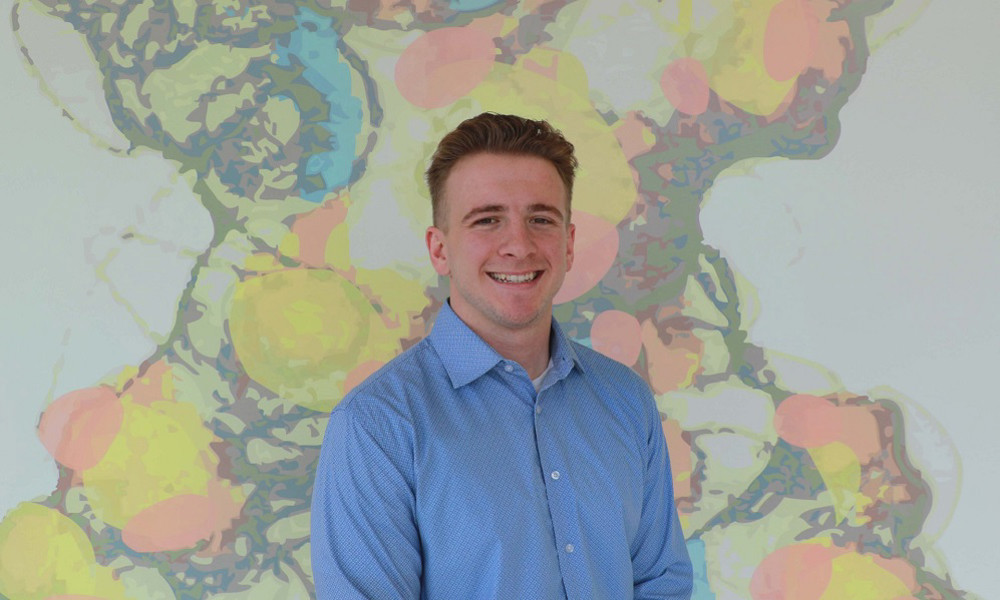Explaining Complex Research to the General Public: The Three Minutes Thesis (3MT) Competition
News
SUMMARY: Eleven graduate students from James Madison University participated in the 7th Annual Three Minute Thesis (3MT) competition, where they had to present their research in three minutes using only one visual. Luke Lotsis, a first-place winner, shared how the competition helped him communicate his research on preventing aging-related muscle degeneration and falls.
On January 24, eleven talented James Madison University (JMU) graduate students took on the challenge of the 7th Annual Three Minute Thesis (3MT) competition. 3MT is a research communication competition in which students present their research in three minutes using only one slide as a visual aid. We wanted to understand this experience from the perspective of a student, so I interviewed Luke Lotsis, a second-year student of the Master of Science in Biology program. Luke’s research focuses on improving clinical interventions for aging-related muscle degeneration and preventing falls. Instead of relying on traditional treatments that focus on patients who are already falling, his research explores ways to strengthen muscles proactively so that patients can prevent problems and improve their quality of life. Luke was encouraged by his advisor to participate in the 3MT competition. He found the competition to be a great opportunity to explain his research. "It was a way to think about how to synthesize my entire thesis and effectively communicate my results," Luke said.
Summarizing months of research into a three-minute presentation was not easy. Experimental research requires elaborate planning with substantial attention to details. For a 3-minute presentation, you really need to concentrate on the big picture, rather than getting caught up in the small details. “I usually struggle with talking about my research within a time limit” Luke admitted. To stay within the time limit, he wrote a script rather than relying on talking points. Luke worked closely with his advisor and practiced in front of peers and faculty. He also got feedback from people outside his research area. Luke said that feedback from people who were unfamiliar with his area of research helped him prepare an accessible and understandable presentation. He found that his teaching and conference experience helped to ease the anxiety that developed as the time for his presentation approached.
For Luke, winning the 3MT competition reaffirmed the importance of his research. As a scientist, there are times when you wonder whether your research is contributing to the field, he shared. He stated “the 3MT competition provided an awesome opportunity for people to both understand and see the real-world applications of my research.” He got the motivation and reassurance that all his hard work over the past year and a half has contributed something that can be very useful in the real world.
Luke encourages future participants to be open to feedback and practice in front of different audiences. “You’re often too close to your research to see what needs more explanation,” he said. Presenting your work to people outside your field can help you understand how to clearly explain what you are doing and why it is important. It is helpful to think about your research from a more global perspective.
Participants in this year’s 3MT Competition represented JMU’s Biology, Psychological Sciences, Kinesiology, Clinical and School Psychology, Strategic Leadership Studies, and Communication and Advocacy programs. This year’s 3MT winners were Luke Lotsis (1st place), DaNae Peterson (2nd place), and Jonathan Miller (3rd place).
